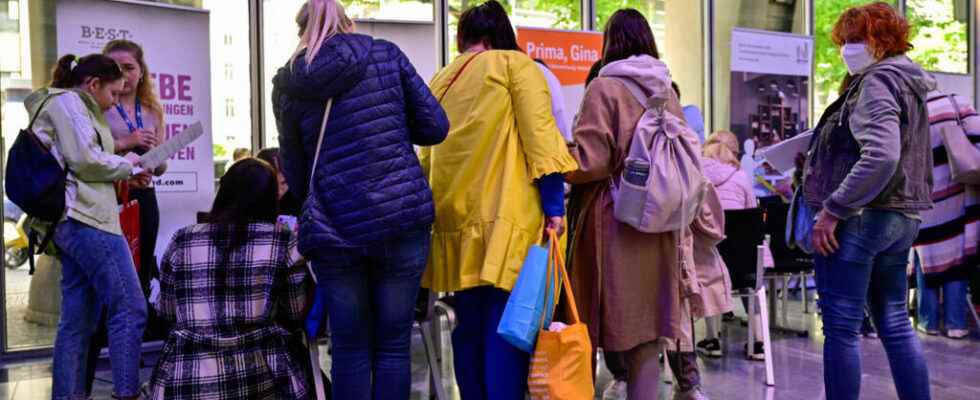Germany has taken in more refugees since the beginning of the year than in 2015, mainly Ukrainians. The municipalities are sounding the alarm, even if we are far from the chaotic scenes observed in 2015-2016 when a million refugees arrived from Syria, Iraq and Afghanistan.
From our correspondent in Berlin,
Tamara arrived from kyiv in March. She is one of the million Ukrainian refugees Germany has taken in since the Russian invasion. On this beautiful October day, this young marketing specialist went to the job fair specially organized in Berlin by the Chamber of Commerce and Industry for refugees. Tamara would like to create her start-up.
If her concept is still secret, the young woman is at the very beginning of her project, and it is directly to the aid stand for start-up projects that she went to the job fair.
This forum is one of the many signs that show that seven years later, Germany is much better prepared for the arrival of refugees than in 2015-2016, as Elanur explains, at the stand of the Goldnetz coffee project , which helps Ukrainian women.
It works much better, we are much better trained than in 2015. At the time, we were ill-prepared for the arrival of this very large number of refugees. Language courses, taking part in integration courses, receiving benefits from the Employment Office… It took an average of three months before people could start learning German! Ukrainian refugees have the direct right to work, immediately receive language lessons, they immediately have residence permits… For the moment, it works very well.
“ There was no political will»
For the Ukrainians who quickly benefited from the temporary protection status of the EU, everything is going faster than with the Syrians, the Iraqis or the Afghans in 2015. A frustrating situation for Nora Bretzger, who has worked since 2011 as a volunteer with the immigrants.
ToTo tell the truth, we have a lot less work with the Ukrainian refugees than with the others, because we granted them so many rights from the outset. When someone arrives and has a direct residence permit, direct access to the housing market, direct access to the labor market, we associations don’t have to fight so much. Which is bitter in a way, because we see that all the claims we had, in fact, it is possible. It’s just that there was no political will.
But if the situation is for the moment less chaotic than in 2015, everything could quickly deteriorate. Already, municipalities are worried. Everywhere, housing is lacking for new arrivals, and once again, sports halls have been transformed into emergency shelters.
